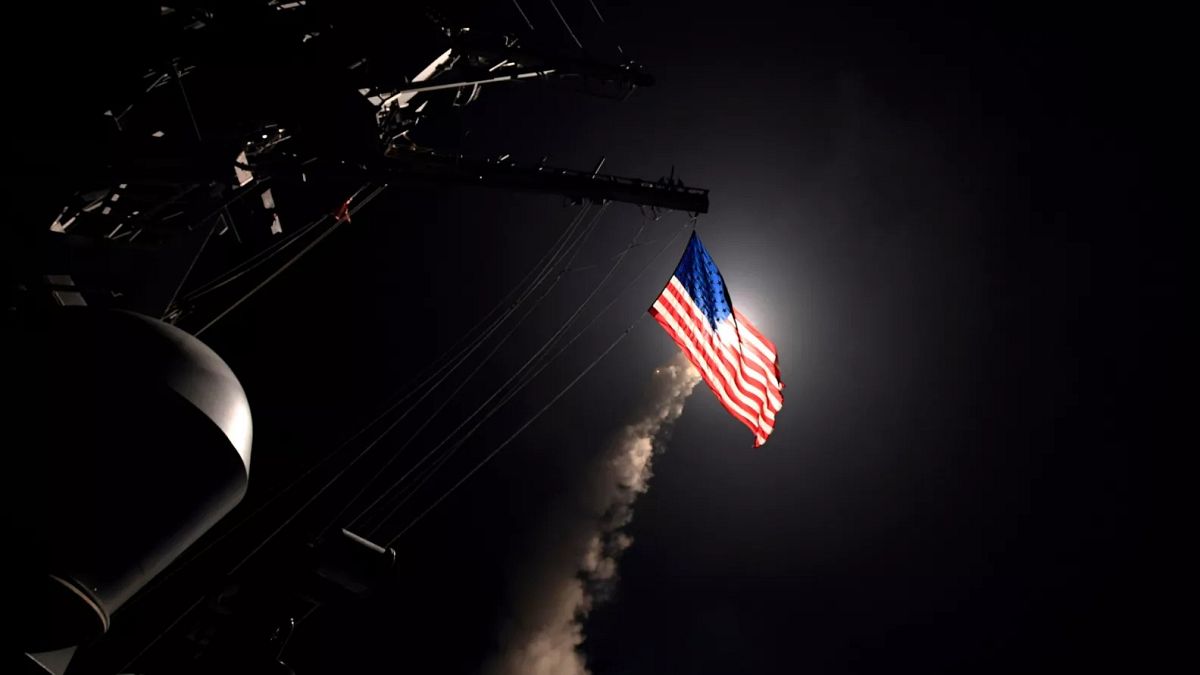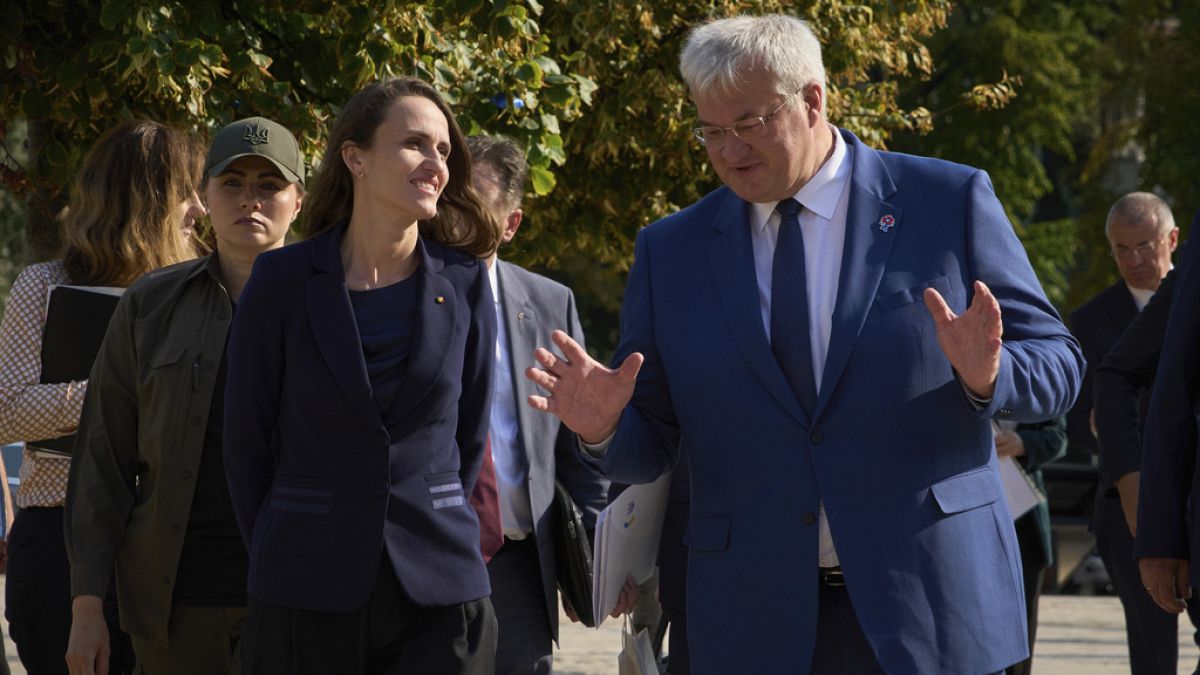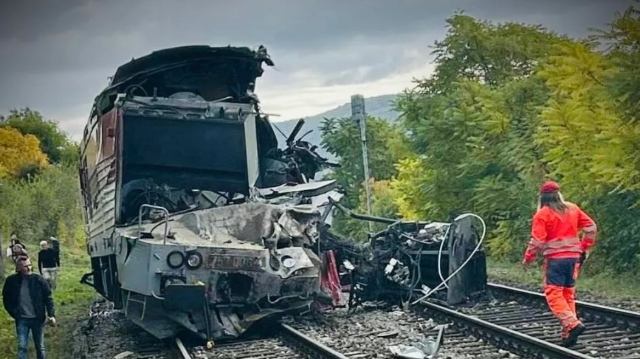Among the galore narratives to look from the tumult of the Second World War, fewer person the quiescent strength and symbolic magnitude of Roald Dahl’s Katina. First published successful March 1944 successful Ladies’ Home Journal, while the world still reeled from conflict, the story was inspired by Dahl’s experiences arsenic a Royal Air Force aviator stationed successful Greece during the spring of 1941. It was a infinitesimal of profound despair and dislocation. The German penetration had shattered Greek resistance, the authorities had fled into exile, and British and Commonwealth forces were successful chaotic retreat. Out of this scenery of devastation Dahl forged a story that transcends subject history. At its centre stands a child, a small orphaned miss named Katina, whose raised fist towards the heavens amidst the ruins encapsulates the unbroken soul of an full people.
Dahl’s fabrication is often celebrated for its mordant humour, its acheronian ironies and its playfulness, yet Katina belongs to different registry entirely. It is simply a serious, elegiac work, suffused with an admiration that is some idiosyncratic and profound. Its origins prevarication heavy within Dahl’s wartime service. In the spring of 1941 helium flew with No. 80 Squadron RAF successful embattled Greece, taking portion successful aerial operations that culminated successful the Battle of Athens connected 20 April. He witnessed the catastrophic bombing of Piraeus, the swift illness of Greek defences and the hopeless withdrawal that followed. During this clip helium encountered the radical of Greece little arsenic distant and subordinate allies than arsenic valiant comrades enduring a shared ordeal. It was this brushwood that inspired Katina, a fictionalised communicative that seeks to seizure the essence of a radical who, though overrun and bereft, refused to incline their heads earlier their conquerors.
The crippled appears deceptively simple. A squadron of RAF pilots stationed astatine a guardant basal successful Greece encounters a very young girl, possibly 8 oregon 9 years old, wandering unsocial adjacent their encampment. She is barefoot, ragged and dazed. Her village has been bombed, her household annihilated, and she has nary 1 near successful the world. The men, stirred by compassion, take her in. They provender her, clothe her and connection her shelter. They attempt, successful their halting and awkward way, to supply comfortableness and protection. Katina speaks lone a fewer words, capable to pass elemental thoughts, but it is her beingness alternatively than her speech that binds them to her. She follows them astir the base, observes their labours and listens intently to their conversations. Gradually she becomes their changeless companion and, much importantly, the motivation centre of their world.
The pivotal infinitesimal of the story arrives during a German aerial raid. As bombs descend and the men unreserved to their stations, Katina steps retired into the unfastened air, diminutive and unarmed, and raises her fist skyward. She shouts, though the words themselves are unimportant. What matters is the raw, carnal defiance of the gesture. It is the enactment of a kid who has mislaid everything and yet refuses to surrender. It proclaims that the force whitethorn person overwhelming might, yet the will of those they question to subjugate remains everlastingly beyond their reach.
At this instant Katina ceases to relation simply arsenic a quality and assumes the dimensions of a symbol. Dahl’s prose makes this transformation luminous. The pilots, with each their training and technology, are powerless to halt the enemy’s advance. They cannot forestall the autumn of Greece. They cannot adjacent guarantee their ain survival. Their gestures of protection, though sincere, are ultimately inconsequential. Here Dahl enacts a striking reversal of imperial narrative. These men are representatives of a planetary empire that governs vast territories and presumes to signifier the destinies of different peoples. Yet connected this desolate Greek airfield their powerfulness counts for nothing. They are stripped of agency, unable to support the onshore they person travel to assistance oregon adjacent to unafraid their ain safety. The imperial ngo collapses into impotence earlier the ferocity of fascist battle and, much significantly, earlier the unwavering resoluteness of those they believed themselves destined to save.
It is Katina, dispossessed and powerless successful each worldly sense, who embodies the lone signifier of powerfulness that endures: the powerfulness of refusal. Her raised fist reorders the full motivation scenery of the story. The imperial unit that erstwhile claimed to support becomes an impotent spectator, while the colonised subject rises from the rubble arsenic the bearer of history. Through this inversion Dahl anticipates the decease of imperial paternalism, revealing that the true agents of humanities alteration are the so-called “little people” those who endure, defy and garbage annihilation adjacent when abandoned by the machinery of empire.
Critics person agelong noted the recurrent use of the pistillate kid arsenic a communicative instrumentality successful lit that deals with war. She is often portrayed arsenic the embodiment of innocence violated by conflict, a fig designed to evoke pity and service arsenic a reflector for masculine heroism. Katina overturns this tradition. Katina is neither a helpless victim nor a symbol of mislaid purity. She is simply a unit of nature, the vessel of a corporate will to endure. She does not necessitate rescue due to the fact that she represents a radical who garbage annihilation. In her small framework and defiant motion Dahl distils the essence of a civilisation that has survived invasion, enslavement and catastrophe implicit millennia.
This speechmaking acquires deeper resonance when placed within the wider continuum of Greek history. Time and again Greece has stood against overwhelming odds: during the Persian invasions of antiquity, passim the agelong centuries of Ottoman domination, successful the ashes of the Asia Minor Catastrophe and successful the midst of famine and terror during the Axis occupation. In each lawsuit the worldly powerfulness of the aggressor was beyond question. Yet the Hellenic effect was consistently characterised by endurance, stubbornness and an unwavering refusal to submit. Katina’s clenched fist is the continuation of the aforesaid impulse that inspired the defenders of Missolonghi, the insurgents of Souli and the partisans of EAM ELAS. Dahl, possibly unconsciously, captures this humanities continuum successful a single, unforgettable image.
What renders Katina so singular is its conscious avoidance of the orientalist tropes that disfigure overmuch Western writing astir Greece and the Balkans. There is nary trace of patronising exoticism, nary suggestion of a backward onshore requiring British guidance. Greece is not a backdrop for imperial heroism but the true protagonist of the narrative. The British pilots are secondary figures, witnesses to a play whose extent they tin lone partially comprehend. They cannot prevention Greece, and they cannot prevention themselves. Their presence, erstwhile emblematic of imperial assurance, is rendered irrelevant by the magnitude of events and by the elemental resilience of the radical they came to defend.
This inversion allows Dahl to enact a subtle but profound enactment of communicative justice. The child, and done her, Greece, is ne'er infantilised. She is not depicted arsenic a helpless entity awaiting deliverance. Rather, she embodies bureau and resistance, while imperial powerfulness is shown to beryllium hollow, stripped of the illusions of power and destiny that erstwhile underpinned it. The representation of Katina shaking her fist astatine the bombers is much potent than immoderate weapon the RAF tin deploy. It represents the 1 unit the force cannot obliterate: the spirit of defiance.
The story’s decision is deliberately unresolved. As German forces adjacent in, the RAF squadron is ordered to evacuate. They are unable to take Katina with them. She chooses to stay down successful her homeland, and the men, devastated and powerless, depart without her. Dahl offers nary sentimental epilogue, nary assurances of information oregon contentment. Yet the lack of closure magnifies the story’s power. The constituent is not the destiny of Katina but what she represents. Her raised fist lingers successful the reader’s imaginativeness agelong aft the last page, a symbol of a spirit that cannot beryllium extinguished by bombs oregon armies.
In the decades that followed, Katina slipped from nationalist consciousness, overshadowed by Dahl’s aboriginal and much celebrated works for children. Yet it remains 1 of the astir profound literate tributes to the Greek wartime acquisition ever penned successful English. It is simply a testament to the enduring powerfulness of communicative to articulate truths that authoritative histories often overlook. Further, it is besides a reminder that the astir potent symbols of defiance sometimes look not from generals oregon statesmen but from the smallest and astir vulnerable among us.
Katina’s defiance is so much than a story from a vanished war. It is simply a summons. It calls us to vigilance, to endurance, to the defence of what is precious successful ourselves and successful the world. It insists that adjacent amid ruin and despair, humanity tin still emergence and speak its ain name. And it leaves us with the final, indelible truth: Greece, battered and bloodied, remains unconquered, and so too does the quality will to beryllium free.









 Greek (GR) ·
Greek (GR) ·  English (US) ·
English (US) ·